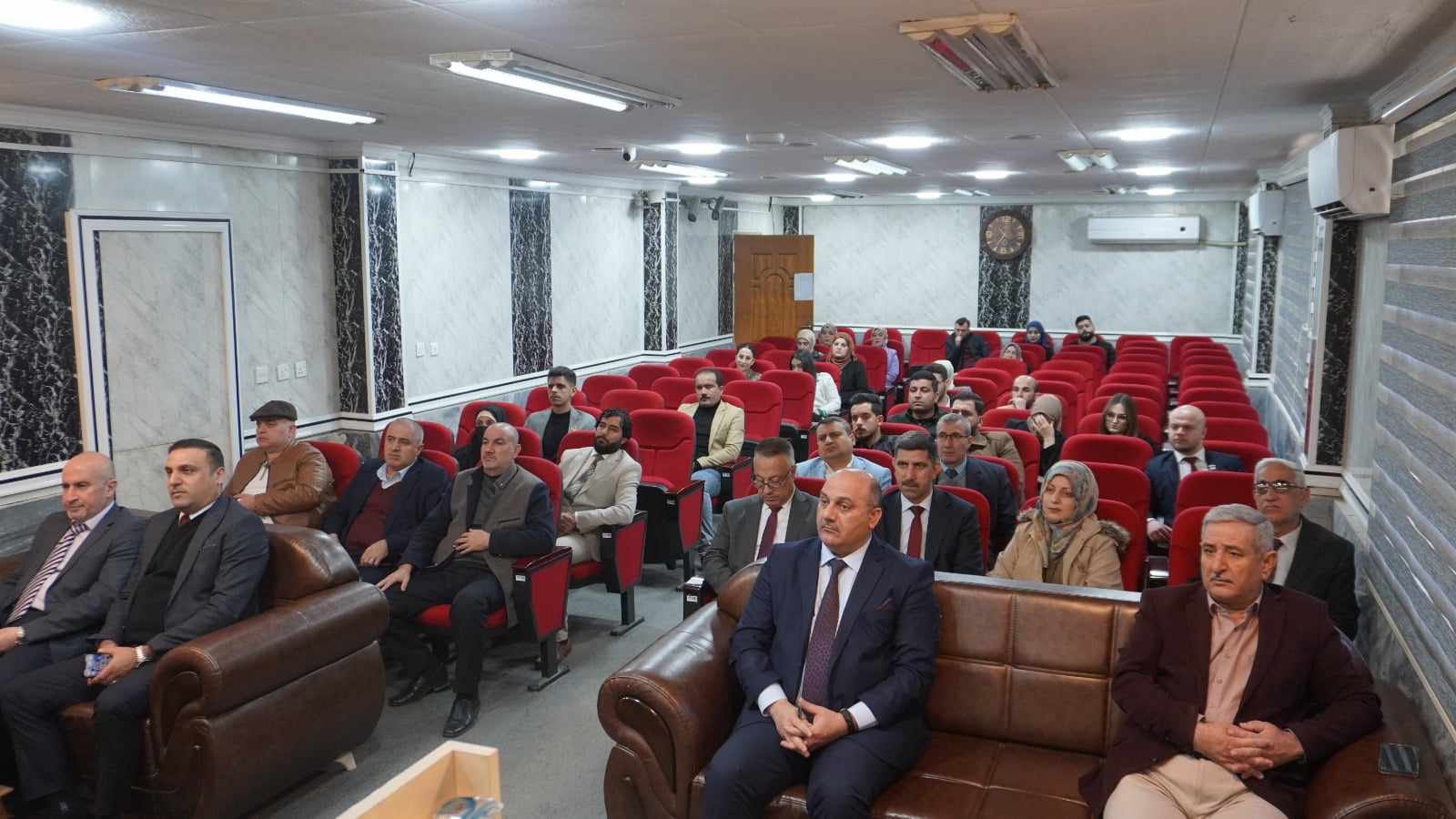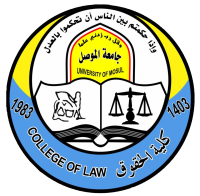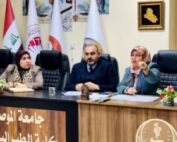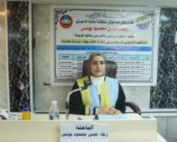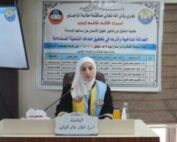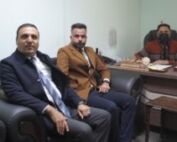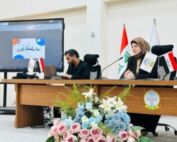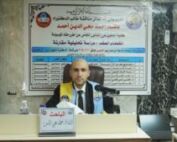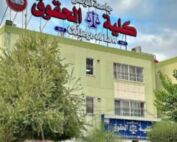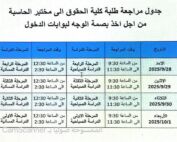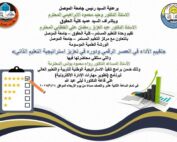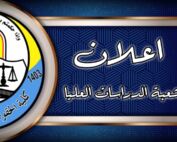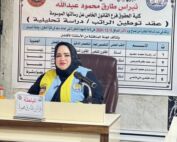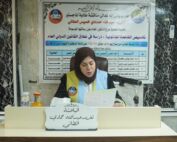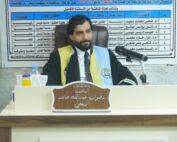5 March، 2024
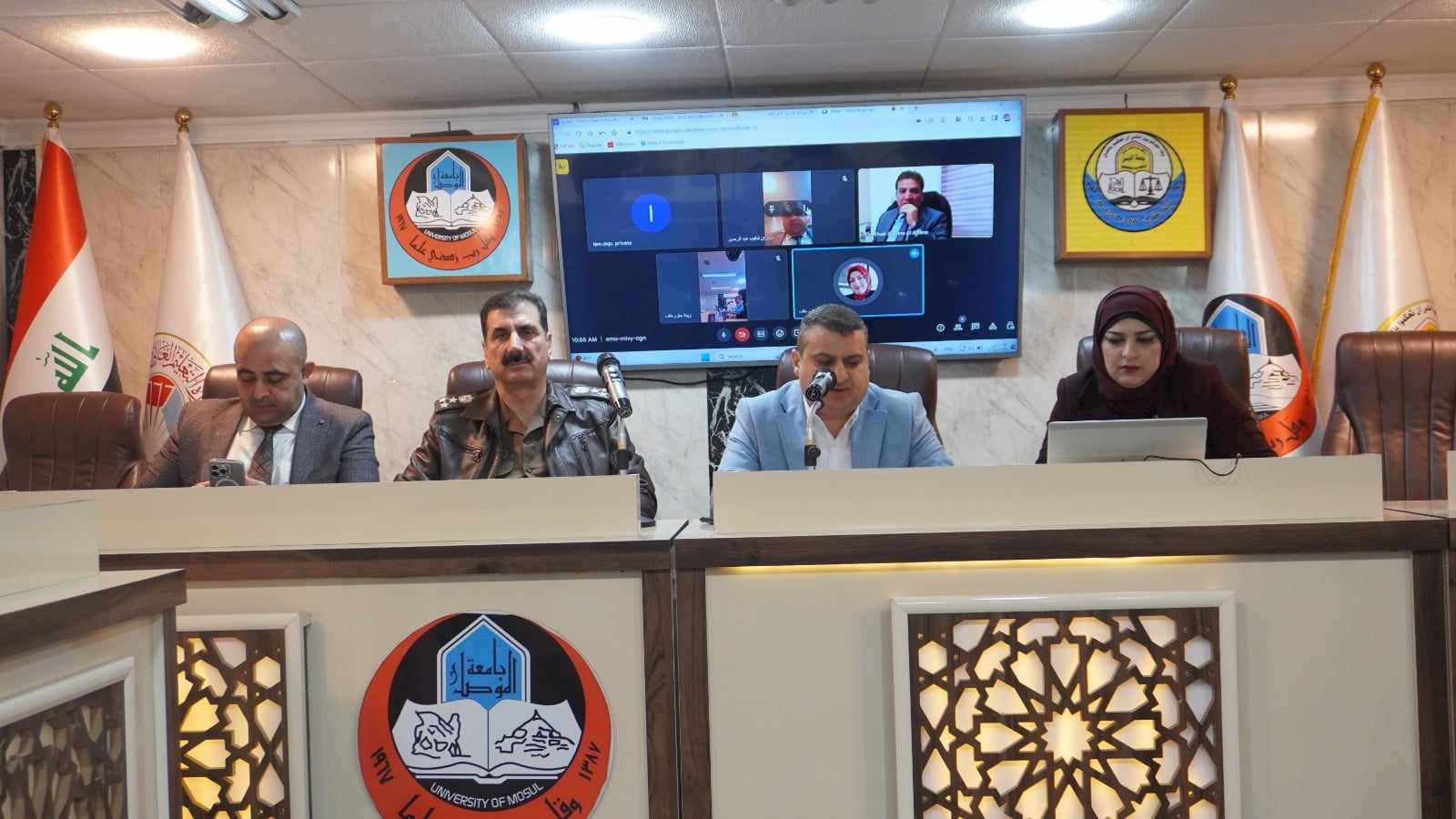
Scientific Symposium
A scientific symposium on the legal reading of the conditions of the Iraqi community abroad,,,
Under the patronage of Professor Dr. Qusay Kamal al-Din al-Ahmadi, President of the University of Mosul, and under the supervision of Assistant Professor Dr. Wissam Nemat Ibrahim al-Saadi, Dean of the College of Law, and the members of the College Council, the Private Law Branch in our college held on Wednesday, February 28, 2024, its scientific symposium entitled Legal Reading of the Conditions of the Iraqi Community Abroad, which witnessed… Presenting a number of research papers that dealt with the legal status of refugees in private international law, with reference to the concepts of asylum, the migrant, the community, the reasons for migration and asylum, the rights of migrants and refugees and their obligations towards their countries and host countries, as well as international agreements concerned with refugee affairs and their legal status under the provisions of Iraqi law, in addition to the definition of the United Nations and UNESCO. The immigrant and the types of immigrants according to the method of his entry into the country, explaining his characteristics and differences from the refugee. The workshop also touched on discrimination in the treatment of the resident foreigner, while addressing the rights and obligations guaranteed by the legislation of the host country, while explaining the role of Jordanian and French legislation as a model in dealing with the foreigner residing in the Hashemite Kingdom of Jordan and France. The symposium also highlighted the role of the Iraqi Ministry of Interior in its creation of the Iraqi Community Section concerned with receiving the transactions of Iraqis residing abroad through Iraqi embassies and distributing them to the Iraqi governorates for the purpose of completing them, with an explanation of the mechanism approved by the above department. The symposium also highlighted the role of the consul in documenting transactions, special facts, and the citizen’s relationship. In his country after traveling abroad and residing in another country permanently or temporarily, with an explanation of the consular services provided by the state to its citizens, as well as an explanation of the laws and legislation that regulate consular work and how to issue life certificates to the Iraqi community abroad through Iraqi embassies and the types of certificates and data required. The symposium touched on the status of The Iraqi community in occupied Palestine, with a statement of the authorized institutions and the approved mechanism for granting entry and residence permits in Palestine. The symposium also showed the Ministry of Foreign Affairs’ communication with the Iraqi community abroad and the role of consulates in providing their services to citizens, especially with regard to identification papers, official documents, and matters related to transactions, with an explanation of the continued expansion of the work of consulates. Iraq, which can now provide its services to citizens electronically. Statistics were also presented on the numbers of Iraqis in Europe and the United States of America, with an indication of the volume of consular services provided to them. Finally, the symposium clarified the policy of integration into society and its impact on the rights of the Iraqi community, pointing to the concept of integration, its causes, importance, plans, programs and stages that are… Different and varied from one country to another. The symposium also witnessed a distinguished presence of researchers, academics, teachers, and those interested in legal affairs, in addition to the college’s members and students, who asked many questions and inquiries about its topic. These were answered in detail by those in charge of it, who were awarded certificates of appreciation from the college’s dean in appreciation of their efforts in establishing This symposium comes within a series of scientific, research, cultural and student activities of our college during the current academic year 2023-2024.
